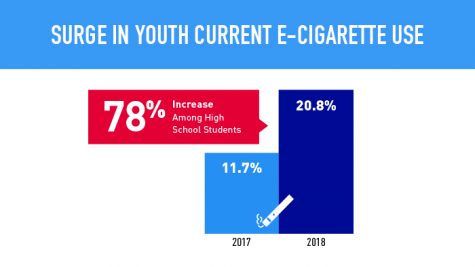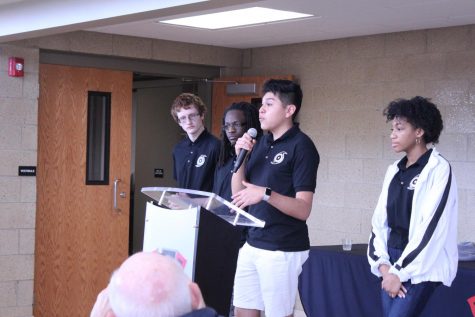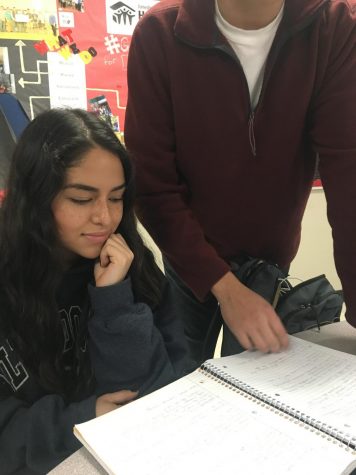Opinion: What is climate change and what is really changing?
March 29, 2019
Climate change or global warming is defined as a change in global or regional climate patterns, but there is more to understand about this issue than the definition provides.
Climate change is seen mostly as a political issue, but it is a very important problem that the environment and world faces today.
Political parties make it seem that climate change is something that you are able to either believe in or disagree with, but science has proven that climate change is real and must be acknowledged.
Mrs. Jessica Nadzam, a Jonesboro High School biology teacher, said climate change and its effects on the environment are discussed and analyzed in her class.
When asked whether she believed in climate change, Nadzam said, “I don’t say that I believe in climate change anymore. I say that I understand it.”
She brings up a point that climate change is “not something that you can believe in, because we have evidence from multiple sources.”
Studies show that $5.2 billion was spent on natural disasters between the years of 1980 and 2011, but during the years between 2011 and 2015, $10.8 billion was spent on natural disasters.
The increase in floods, hurricanes and other extreme storms show an evident change in certain environments.
The warming of the Earth is also affecting our marine environment.
For example the higher temperature of different oceans causes oxygen levels to decrease.
The increasing temperatures cause the metabolism of these animals to speed up, which then causes them to need to absorb more of the missing oxygen.
This especially impacts species like salmon, tuna, cod and even some species of squid.
In addition to the effects on the marine environment, the drastic changes in weather are also impacting farmers and other major food production companies.
Not only does climate change influence weather and the marine environment, food production is suffering as well.
The flooding of fields damages crops and the warming of the surrounding environment and other harsh weather aspects reduce the production of certain products.
In an attempt to see what students at Jonesboro High School thought about climate change, 41 students were given a Google form about their opinions on climate change.
Out of these 41 students, 92.7 percent said that they believed in climate change and 7.3 percent said they did not believe climate change is a global issue.
If they answered no, these students were asked to explain why, and students replied by saying “because climate change is a made up theory” and that they “don’t really know what (climate change) is.”
The students were also asked why they thought people still don’t believe in climate change even after scientists have released information proving it exists.
The students said things like “people don’t wanna face reality,” “because (scientists) never prove it,” and “(people) refuse to change their beliefs no matter what happens.”
This information suggests that more publication of the issue needs to happen or that education of certain information regarding climate change needs to occur.
Such political divide about the issue in society makes it hard to make beneficial changes to the environment, but some discussion is happening surrounding making certain alterations.
For example, the Paris Agreement, which was first effective on Nov. 4, 2016, is taking action to keep the earth’s rising temperature below 2 degrees Celsius.
As well as the Paris Agreement, other agreements like the Kyoto Protocol are fighting for this cause to be recognized.
The Kyoto Protocol is an agreement that assigns a specific amount of greenhouse gases that one party (country) can release.
The agreement targets gases like carbon dioxide, methane, and nitrous oxide,
All of the above mentioned gasses help to warm the earth’s atmosphere, and excessive release of the gasses by factories cause the overheating of the planet.
Scientists predict that we have at least 12 years to create crucial change to the situation.
Without any changes the environment will suffer through many extinctions, harsh flooding and food deprivation, so it is important that changes are made and recognized.







